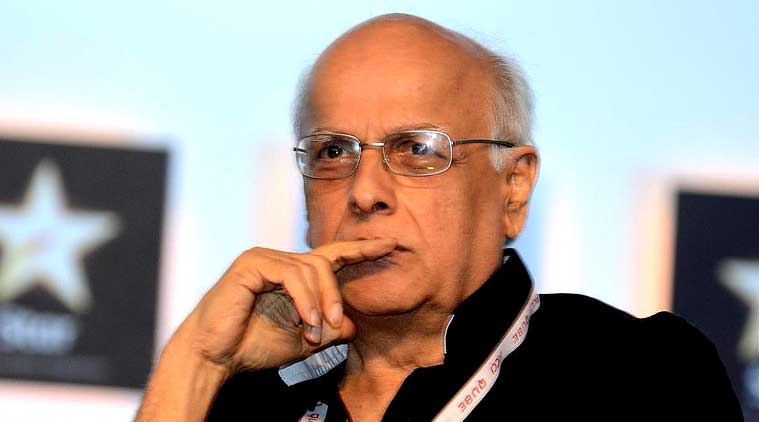Aashiqui had the truth of my life and the musical vision of Gulshan Kumar-Mahesh Bhatt
8:21 AM
Posted by Fenil Seta

Amidst a row over the ownership and creative rights of the Aashiqui franchise, Mahesh Bhatt, who directed the original in 1990, breaks his silence
Renuka Vyavahare (BOMBAY TIMES; October 11, 2023)
Part autobiographical, starring brand news faces Rahul Roy and Anu Agarwal, director Mahesh Bhatt’s Aashiqui became a smash hit in 1990. Its music topped the charts for years and continues to resonate with listeners. The romantic musical saw a sequel headlined by Aditya Roy Kapur and Shraddha Kapoor and directed by Mohit Suri in 2013. A third successor, Aashiqui 3, was announced in September last year by the same collaborators (T-Series and Vishesh films) with Kartik Aaryan in the lead and to be helmed by Anurag Basu.
However, a row over the ownership and creative rights of the franchise seems to have ensued, given Vishesh Films’ recent public notice followed by Mukesh Bhatt’s statement (he heads the banner, after Mahesh and he parted ways). Taking to their official Instagram handle, Vishesh Films issued a notice on September 25.
Excerpts from the statement said, “Vishesh Films is the producer and joint rightful owner of the intellectual property rights associated with the Aashiqui franchise. Any communication made without our involvement is unauthorized and fraudulent.”
Mahesh Bhatt, who made the iconic 1990 original, spoke to Bombay Times exclusively, shedding light on the issue.
‘Right isn’t always legal’
He said, “In this time and age when the moral compass of the world has shattered, and it’s become a moral desert, it’s important that elders behave like elders. Right isn’t always legal, and 50 per cent rights are in any case with T-Series. But I choose to stand for what’s morally right. In the case of Aashiqui, that moral legacy belongs to Gulshan Kumar and, in his absence, to Bhushan Kumar. Gulshan’s vision, support, and timeless music are at the heart of Aashiqui’s enduring impact.”
‘Aashiqui began with Gulshan Kumar’
Mahesh Bhatt recounted, “I remember that I was shooting at Horizon Hotel in Juhu, and a man who was standing at the corner of my set introduced himself as a music baron, who had just moved to Mumbai from Delhi. He said, ‘Main Shivji ka bhakt hu. Unhonay mujhe sapne mein kaha ke main aapke paas aau. Aapse film banwau. Aapka naam Mahesh hai na?’ I said yes. He said, ‘Music ka bank hai mere paas. Anurada ji (Paudwal) humare company ke saath hai. Aapko jo gaane pasand hai aap le lijiye, ya naye banwalijie. Ek acchisi musical bana dijiye. Main aapko promise karta hu, Hindustan kay konay konay mein main yeh gaane le jayunga. Har ghar mein bajwaunga. Badle mein, aap 50 per cent le lijiye.’ The simplicity and innocence with which he spoke was the beginning of Aashiqui. I distinctly remember I was shooting Dil Hai Ki Manta Nahin (1991) in Madhumalai forest (Tamil Nadu) with Aamir Khan and Pooja (Bhatt). In that forest, I heard one of the songs from Aashiqui playing. I turned to Pooja and said, ‘That man promised me that he will take the music across India."
The resurgence of the franchise
“When we decided to have a resurgence of the Aashiqui franchise, Bhushan was aware that he was up against a formidable brand called Aashiqui (1990) and its music, but he wanted to keep his father’s legacy alive. I personally feel that since I was the person whom Gulshan Kumar came to, I must speak up. They (T-Series) own the 50 per cent rights anyway, and the moral right of a product belongs to the person who gave birth to it. Let the legal experts sit down and discuss the details, I am talking about the moral compass, and I want to set the record straight. I have nothing to gain from this,” Bhatt says.
‘Aashiqui had the truth of my life’
He further elaborates, “I am known as an autobiographical filmmaker for my films like Arth (1982) or Zakhm (1998), but the romance you see in Aashiqui (1990) between Rahul Roy and Anu Agarwal is based on my first love with Lorraine Bright (Pooja Bhatt’s mother). I was 16 and she was 14 and studying in Bombay Scottish. The classroom scenes, her being thrown out and becoming my responsibility… my personal life was in Aashiqui. That film had the truth of my life and the musical vision of Gulshan.”
The ownership debate
The ownership debate doesn’t interest me because I have never been a man of business. I have consciously stayed away from it. I don’t have the stomach to sit down and argue the legal aspects. That’s for the legal experts to sort out. We are talking about the moral background. We come from a time when everything wasn’t spelt out. If you gave someone your word, you stood by it. Those values need to be resurrected even more today as everyone looks at the other with distrust.”
This entry was posted on October 4, 2009 at 12:14 pm, and is filed under
Aashiqui,
Anu Agarwal,
Anuradha Paudwal,
Gulshan Kumar,
Interviews,
Mahesh Bhatt,
Mahesh Bhatt interview,
Mukesh Bhatt,
Rahul Roy,
T-Series
. Follow any responses to this post through RSS. You can leave a response, or trackback from your own site.
Subscribe to:
Post Comments (Atom)
Post a Comment